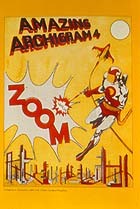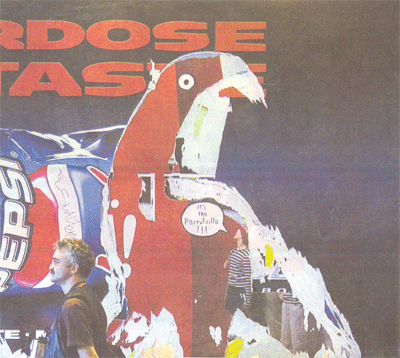
British writer J.G. Ballard died on Sunday 19 April 2009. Ballard, who had been diagnosed with prostrate cancer in June 2006, was 78 years old. Among his best-known novels are such as Crash, High-Rise, Empire of the Sun, and Super-Cannes.
Though usually cited as a science fiction writer (he was one of the vanguards of the "New Wave" of sci-fi coming into prominence in the 1960s with such celebrated magazines as New Worlds, which he also contributed), Ballard's main theme was the psychopathology of contemporary society. The writer inspired by French Surrealists of the early 20th century, Ballard's works usually were about the civilisation crumbling but also mutating into something else, creating its own beauty and serenity. His psycho-geographical landscapes were inhabitated by alienated but inquisitive characters obsessed by a combination of technology, celebrity cult, sex and violence; all of which they worshipped with a religious fervour and even some sort of strange dignity.
Crash (1973) is about a small cult of people sexually obsessed with becoming injured or even dying in car accidents, preferably featuring some celebrity figures such as Elizabeth Taylor. Concrete Island (1974) describes a modern-day Robinson Crusoe, who finds himself helplessly stranded on a traffic island in the abyss of a spaghetti junction, his pleas for help ignored by passing cars. As with film director Luis Buñuel, Ballard's works could often be seen as surreal satires of the "discreet charm of bourgeoisie", and High-Rise (1975) shows a group of people consisting of highly-paid professionals and inhabiting an ultra-modern tower block degenerate into a constant life of violent orgy. In The Unlimited Dream Company (1979) an aviator crashes his plane in a suburb town of the Thames Valley, becoming a sort of Messiah with supernatural powers in a tale which might be or not only a final fantasy of a dying man. Ballard's late quadrology Cocaine Nights (1996), Super-Cannes (2000) (these two being actually companion pieces, so similar they are in their themes), Millennium People (2003) and Kingdom Come (2006) also show these same upper-middle class people instigating absurd violence to alleviate the boredom and social friction in their tightly guarded resort communities, business parks and shopping malls.
In a perfect world, the Nobel Award for Literature would have been Ballard's, but science/speculative fiction has never really fitted the appetites of that venerable election committee, not to speak about the controversial nature of his works. It would perhaps be preposterous to call Ballard's works prophetical, but I'm quite sure in the years to come more and more resonance will be found with his works and how the world around us turns out to be. No, as it already is: Ballard's dystopias took place not in some far future or a faraway country, but here and now.
In popular culture, J.G. Ballard has been for years a hip name to throw around and his works have inspired countless other writers, film-makers, artists and musicians. Empire of The Sun, an autobiographical book on Ballard's childhood years in the Japanese-occupied Shanghai, was filmed by Steven Spielberg in 1987. The Crash film version by David Cronenberg (whose earlier works such as Videodrome had a definite Ballardian tone) stirred some controversy in 1996.
Daniel Miller, the founder of Mute Records, recorded in 1978 under the alias of The Normal 'Warm Leatherette', a song based on Ballard's Crash. The Normal's electronic contemporaries such as Gary Numan ('Down In The Park') and John Foxx (Metamatic) have read their Ballard, too. Joy Division's late frontman Ian Curtis took the name for one of their songs, 'The Atrocity Exhibition', from a short story collection of Ballard.
The Normal: 'Warm Leatherette' with film clips from Crash adaptation by David Cronenberg
Obituaries & tributes:


















